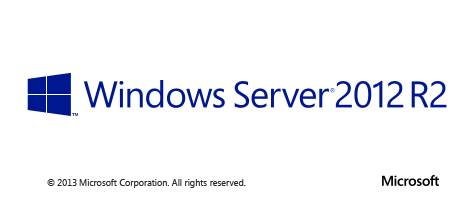Thecus W5000 WSS NAS Review
Low-cost Windows Storage Servers (WSS) give small businesses access to enterprise-class features at a desktop price.
Why you can trust Tom's Hardware
Conclusion
At CES in 2007, Bill Gates announced Windows Home Server. Before the end of that same year, products were on retail shelves. The software was intended to be a solution for home users' problems with multiple PCs. Enterprise features were wrapped in the familiar Windows shell, and customers received easy access to file sharing, automated backups, remote access and print server sharing.
In 2011, Microsoft updated its software package, though it fizzled out along with dedicated home theater PCs. Windows Storage Server 2012 R2 was the next step in the evolution of a product that never really caught on. Indeed, WSS looks great on paper. In practice, though, it leaves much to be desired.
Microsoft is trying to compete with a free operating system and still trying to make a profit. Thecus and its competition have spent time and money developing their own custom Linux-based operating environments, and now they have refined implementations. Thecus' own solution is very efficient, imposes low overhead and is intuitive to use. Furthermore, the Thecus OS lets you transfer files faster than WSS.
Granted, Windows is a piece of cake to navigate for anyone who grew up using it. That's the idea behind sacrificing performance for familiarity. But WSS 2012 R2 is not like Windows 7 or even Windows 8. Users of the desktop OS don't normally set up Active Directory, advanced permissions or most of the features highlighted in WSS. Familiarity gets tossed out the window when Windows users are faced with the complexity of a storage server.
After using both operating systems for years, I think the standard Thecus OS is easier to work with than Microsoft's version. And I'm no seasoned Linux veteran. The last time I installed Linux on a desktop, it took me two weeks just to get everything set up correctly.
Sadly, Thecus bought into the Windows Storage Server 2012 R2 Essentials and Windows Storage Server 2012 R2 Standard hype. Hopefully, Microsoft kicked back something on the Windows license fees. The company now has nine models listed. All three SOHO/SMB models were revisited within their first six months of availability to address the hungry OS' need for more DRAM.
If you are looking for a low-cost NAS that is easy to work with, offers enough power to run applications and is hassle-free, Thecus' N5550 is a good choice. The Windows equivalent that we tested today costs roughly $150 more, offers fewer resources to run applications and provides a less satisfying user experience.
Get Tom's Hardware's best news and in-depth reviews, straight to your inbox.
MORE: All Storage ArticlesMORE: Latest Storage News
MORE: Storage in the Forums

Chris Ramseyer was a senior contributing editor for Tom's Hardware. He tested and reviewed consumer storage.
-
Deuce65 "Low-cost Windows Storage Servers (WSS) give small businesses access to enterprise-class features at a desktop price."Reply
Um, is this a hardware review or a press release? -
Travis Hershberger While many people may actually use RAID 5 with this device, this is what we call professional malpractice among IT pros.Reply
Ref: http://www.smbitjournal.com/2012/11/one-big-raid-10-a-new-standard-in-server-storage
http://www.smbitjournal.com/2012/11/choosing-raid-for-hard-drives-in-2013
http://www.smbitjournal.com/2012/11/choosing-a-raid-level-by-drive-count
http://www.smbitjournal.com/2013/06/dreaded-array-confusion
http://www.zdnet.com/blog/storage/why-raid-6-stops-working-in-2019/805
http://www.zdnet.com/blog/storage/why-raid-5-stops-working-in-2009/162 -
CRamseyer You need to understand a couple of things about all of those articles. The articles are not talking about your home or small business NAS with four or five drives to start with. The ZDNET author has a history of writing articles and article titles to bring people in. Many disagree with Robin's findings. I wouldn't say that is the case with the only article that relates to this review though, Why RAID 5 Stops Working in 2009. In that article he references a 7-drive RAID 5 array. With 6 or more drives we use RAID 6 (RAID 10 in some cases) for the very reason he cites. With five drives and in a home or small business environment RAID 5 is sufficient as long as you are proactive. Keep the system on a battery backup, keep air vents fee of dust and if a drive fails replace it right away.Reply
Some users may want to take redundancy to the next level and run RAID 6 on a 5 drive array. That is fine and I know people that do. I don't recommend it on a sub-1000 Dollar system that already has performance issues with RAID 5 though. -
Marco Ullasci "We rarely hear of failures in the field"Reply
Here I am.
"In our own experience, NAS failures come from easy-to-replace fans and power supplies, rather than the main components that make up the heart of the system."
Changed power supply and changed fan but still no fun.
I had to dump my DS411Slim after putting some € on it in an attempt to fix.
The brown thing happens.
